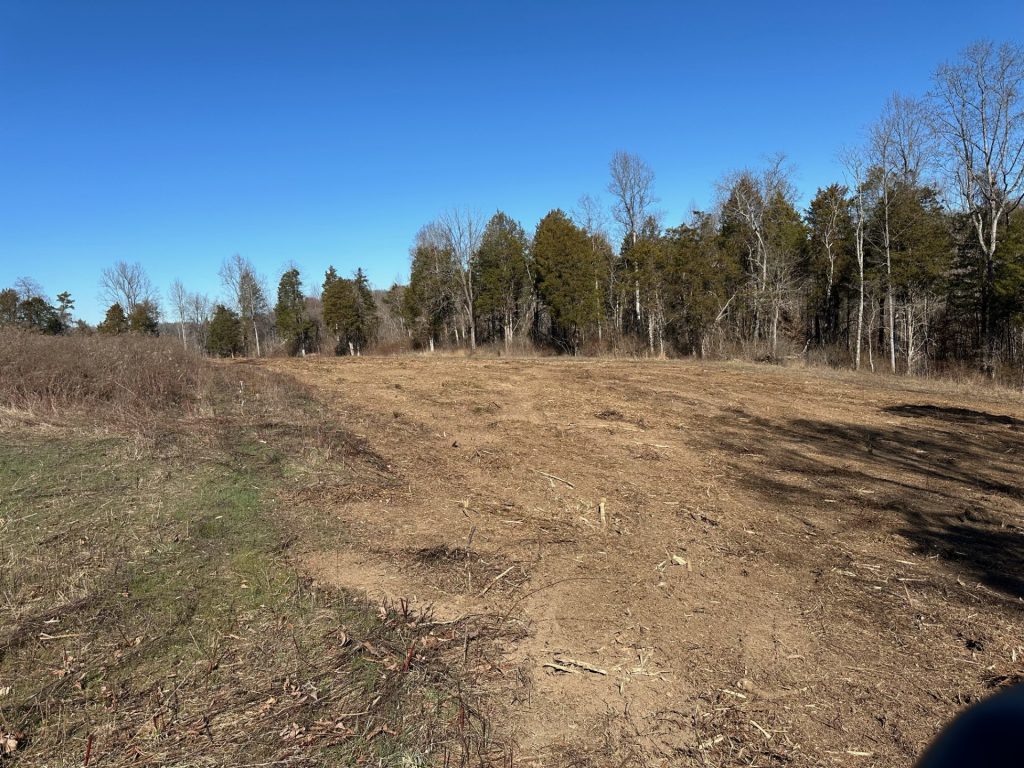Austin Knight Foundation Donates to NWTF and TWRA
EDGEFIELD, S.C. — The NWTF and the Tennessee Wildlife Resources Agency have continued another year of habitat management work on the Chuck Swan Wildlife Management Area in Sharp's Chapel, thanks to a generous donation from the Austin Knight Foundation.
The Austin Knight Foundation and Tristar Hat and Apparel were created to honor Austin Knight and to carry on his memory and passion for hunting, fishing and wildlife. In the spring of 2023, the foundation committed to an annual donation of $10,000 per year to the NWTF for habitat enhancement within Tennessee.
This year, the foundation's $10,000 gift became $34,000 through grants, and the boosted funds have been utilized to improve the habitat for wild turkeys and many other species in the Chuck Swan WMA, a place where Knight enjoyed recreating.
The Chuck Swan WMA is co-managed by the Tennessee Division of Forestry and the Tennessee Wildlife Resources Agency. TWRA manages around 1,300 acres of wildlife openings, and TDF does the majority of timber harvests.
“The funding we have from the Austin Knight Foundation has allowed us to purchase needed fuel, herbicides, equipment and tools to make our job easier to revitalize and maintain the wildlife openings at Chuck Swan WMA,” said Dustin McCubbins, TWRA wildlife manager. “Our plan is to create better habitat across the WMA, which will not only benefit wild turkeys, but deer, bobwhite quail, rabbits and many other wildlife species that are found here.”

This season, over $31,000 was put towards habitat projects within the Chuck Swan Wildlife Management Area, impacting nearly 400 acres total. Notably, 200 tons of agricultural lime was purchased to increase the soil pH on 150 acres of wildlife openings that were previously mulched.
“Increasing the pH makes the nutrients in the soil more accessible for plants,” McCubbins said. “This allows both planted crops like corn, soybeans and clover and native forbs and grasses to thrive.”
Land managers also used the donation to purchase new equipment including a grapple for a mini excavator, saws and a backpack blower. These tools allowed land managers to cut back 10 miles of field access roads and cut back 50 acres of wildlife opening field edges.
Managers were also able to purchase seeds and herbicides to plant clover and wheat seed across 120 acres that were heavily mulched and burned in previous years. In addition, TDF has been conducting prescribed burns on 25 acres of the Chuck Swan WMA.
“These areas were historically managed with prescribed fire and mowing,” McCubbins said. “While fire is a very useful tool, it is weather dependent and a couple years with bad burning weather allows some of these wildlife openings to become overtaken by woody stems, like yellow poplar, black walnut and other light-seeded trees. The plan is to get these wildlife openings back into ideal nesting and brood rearing habitats by using a variety of tools, including forestry mulching, herbicides, mowing, disking and prescribed fire to set back succession.”
These management tools aim to convert overgrown, fallow wildlife openings back to manageable acreages.
“The conservation work being done on Chuck Swan is providing excellent nesting and brood rearing habitat for wild turkeys,” said Derek Alkire, NWTF regional biologist. “The creation and management of early successional habitat on the area supports the NWTF Habitat for the Hatch Initiative. Without the active management being done, habitat needed for nesting and brooding would be lost.”
About the National Wild Turkey Federation
Since 1973, the National Wild Turkey Federation has invested over half a billion dollars into wildlife conservation and has positively impacted over 24 million acres of critical wildlife habitat. The NWTF has also invested over $10 million into wild turkey research to guide the management of the wild turkey population and to ensure sustainable populations into perpetuity. The organization continues to deliver its mission by working across boundaries on a landscape scale through its Four Shared Values: clean and abundant water, healthy forests and wildlife habitat, resilient communities, and robust recreational opportunities. With the help of its dedicated members, partners and staff, the NWTF continues its work to provide Healthy Habitats. and Healthy Harvests. for future generations.
